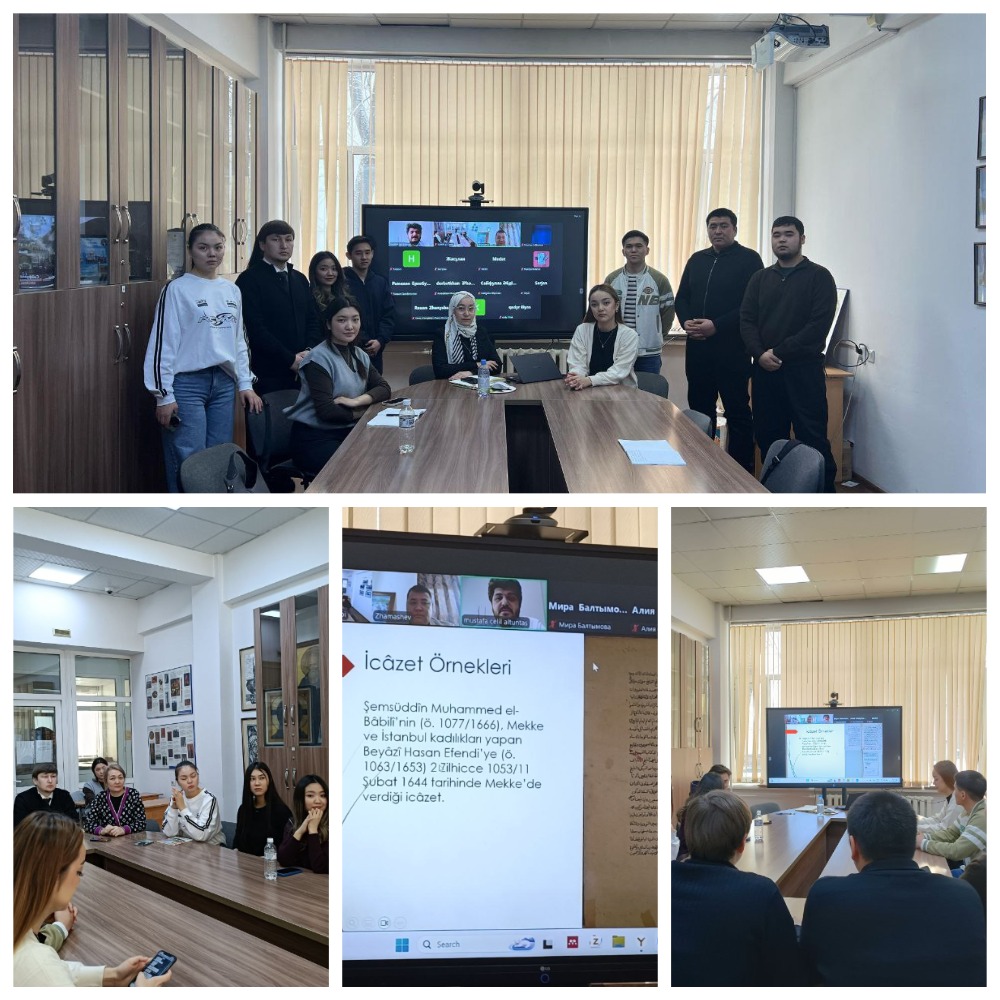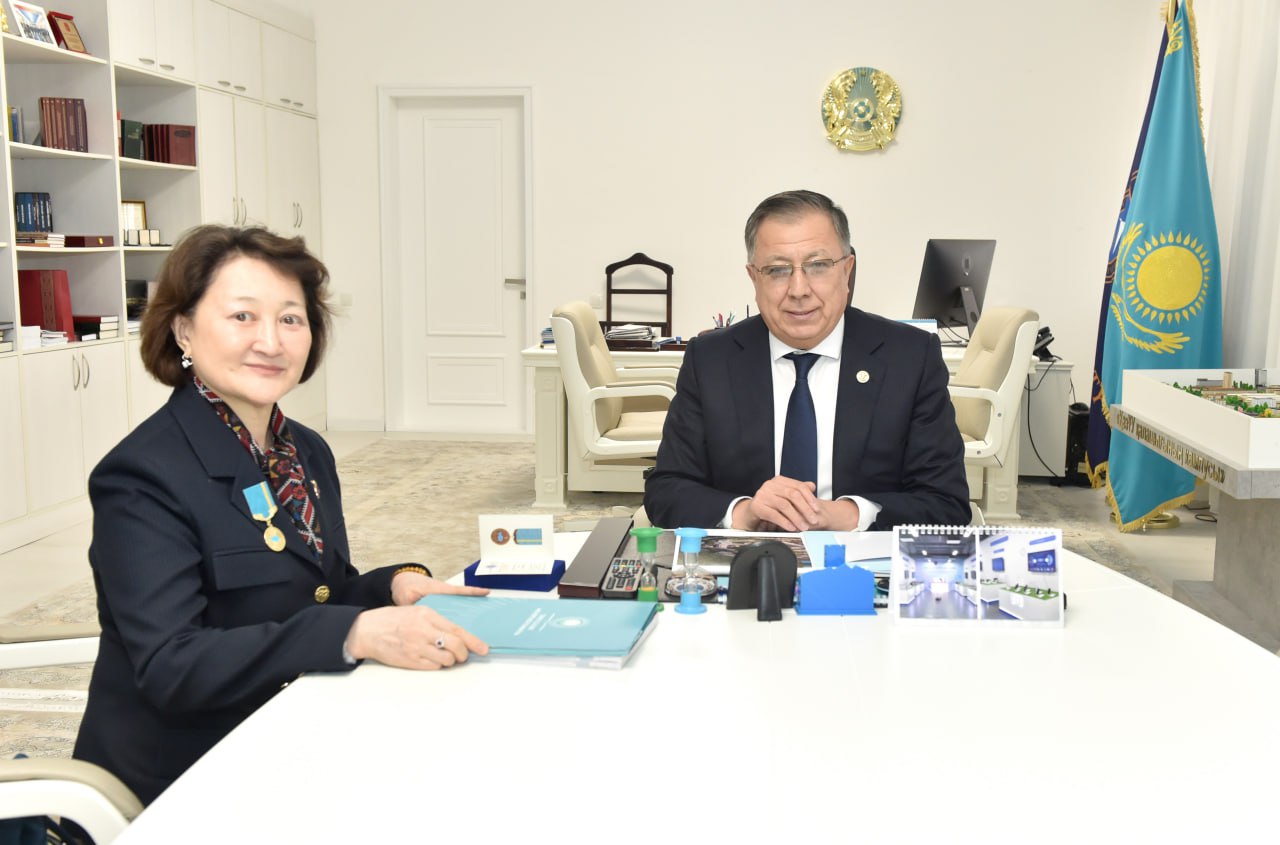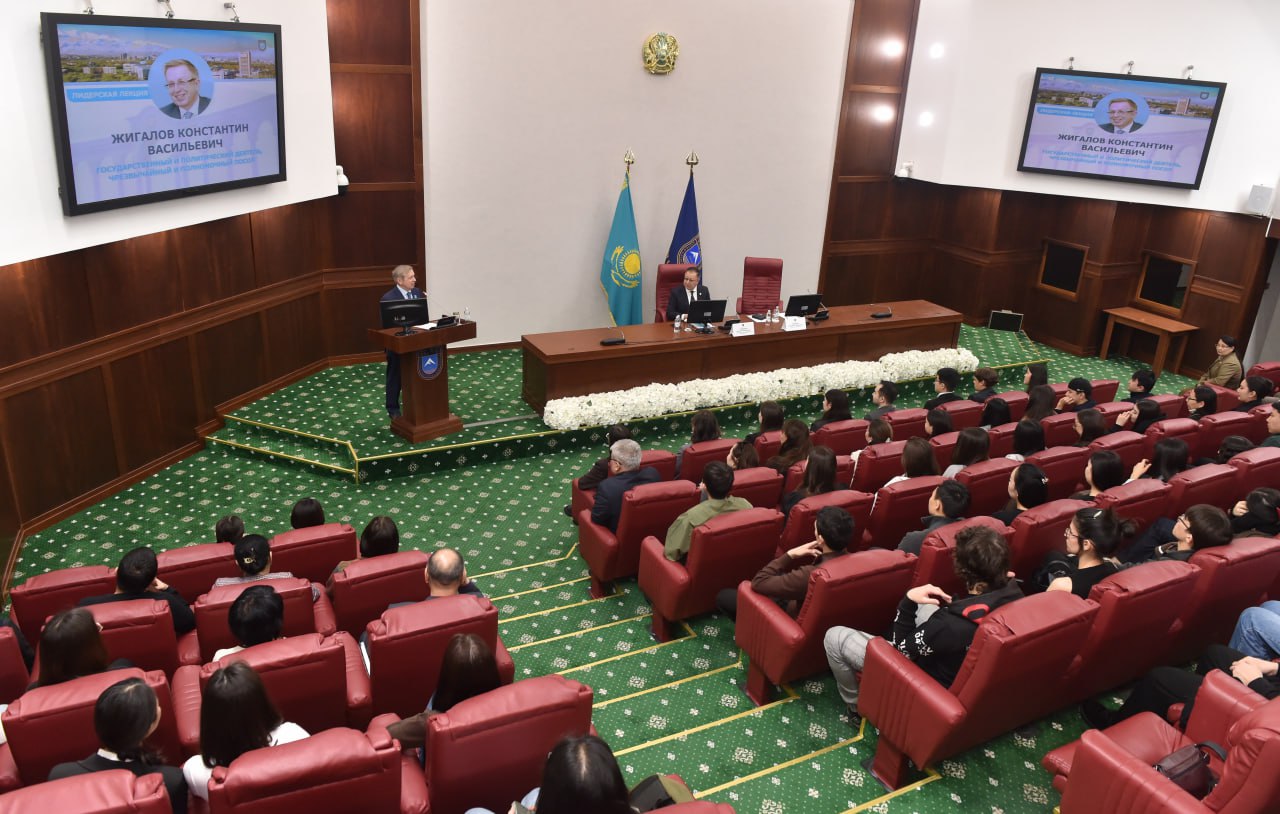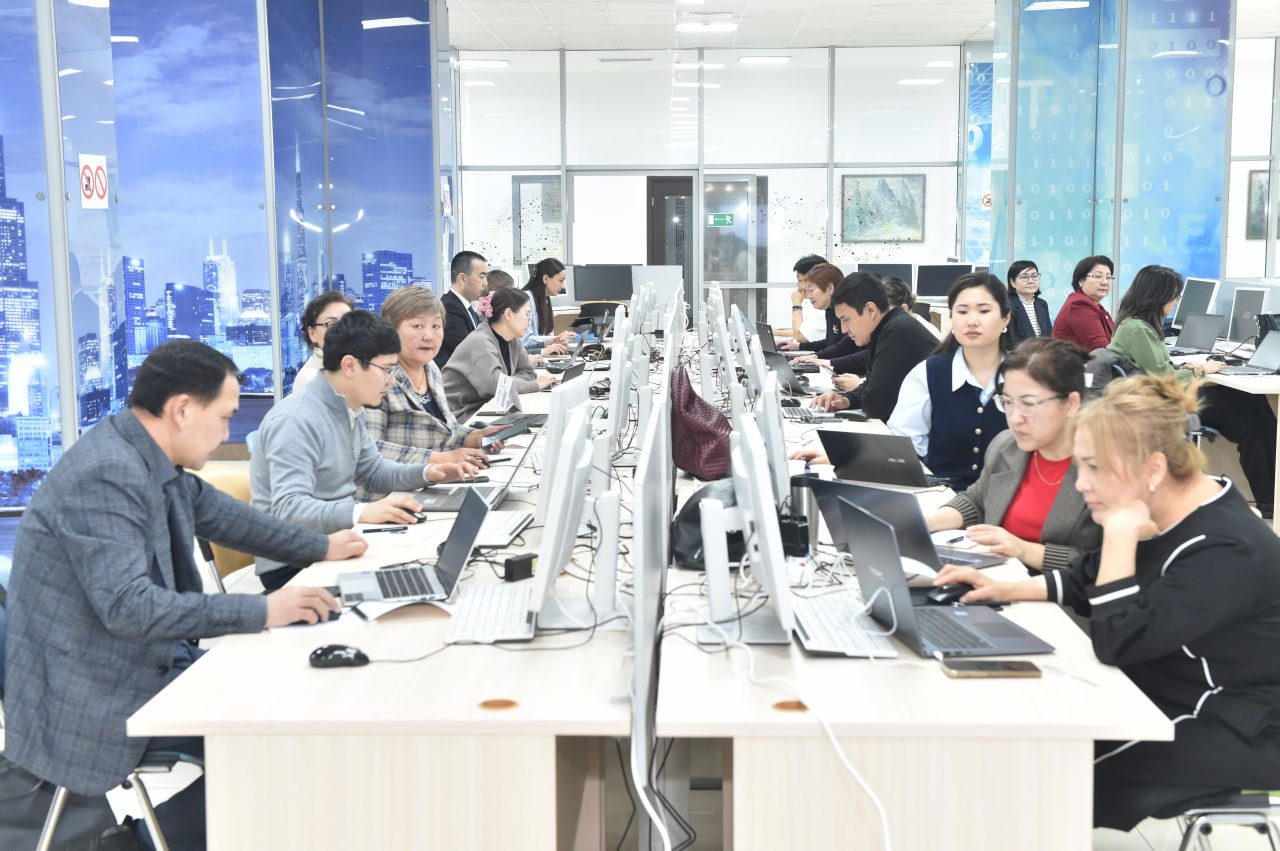Ислам методологиясы: биографиялық деректерді жинаудың тың әдісі

27 ақпан әл-Фараби атындағы Қазақ Ұлттық университеті Философия және саясаттану факультеті Дінтану және мәдениеттану кафедрасы «Ислам методологиясы: биографиялық деректерді жинаудың тың әдісі» тақырыбында ғылыми вебинар ұйымдастырды. Бұл шара «Сапалы білім беру», «Тұрақты даму үшін серіктестік» тұрақты даму мақсаттары аясында іске асты.
Вебинардың басты қонағы Ыстамбұл университеті Теология факультеті деканының орынбасары, PhD, қауымдастырылған профессор, хадистану, хадис методологиясының маманы Мұстафа Желил Алтунташ (Mustafa Celil Altuntaş) мырза исламтанушы студенттер мен зерттеушілерге хадис ижазалары мен себеттерінің ғалымдар биография деректерін жинаудағы маңызына қатысты мазмұнды баяндама жасады. Бұл тақырыптың таңдалуы да бекер емес. Хадис ижалары бойынша профессор терең зерттеп, ғылыми мақала жазған, Ыстамбұл университетінде докторанттардың оқу бағдарламасына енгізген.
Ислам әдебиеттерінің ішінде биография мәліметтері табақат пен таражум еңбектерінде берілетіні белгілі. Бірақ қандай да бір сала маманының өмірбаянын іздегенде онымен шектелу аздық қылады. Сол себепті Мұстафа мырза ғалымдардың биографиясын жинақтау мен табудың он шақты қайнаркөзін көрсетті. Мысалы, тарих кітаптары, шежіре-жылнамалар, саяхатнама (саяхатшылардың жазбалары), естеліктер, мұрағат деректері, қолжазба кемеріндегі ескертпе, жазбалар, ижаза мен себетлер (жинақтары). Хадис ижазасы хадисті жеткізушінің пайғамбарға дейін тізбекті рауилерді қамтитын құжат болса, себет ұғымы зерттеулердің аздығы себепті термин ретінде көпшілікке танылмаған. Себет дегеніміз, профессор көрсеткеніндей, бір ғалымның ұстаздары мен оқыған кітаптарын қамтыған еңбек түрі.
Спикер өзі зерттеген ХVII ғ. ижаза мен себеті күнімізге жеткен ғалымдардың бірнешесінің есімін атады. Теория мәліметтерімен шектелмей, қолжазбаларды көрсетіп зерттеу нәтижелерін нақты мысалдар арқылы берді. Осы арқылы болашақ исламтану зерттеушілеріне қолжазбалармен жұмыс істеудің маңызын білдіріп, спецификасын көрсетті. Тіпті Түркияның қолжазба қорын зерттеп Мұстафа Желил Алтунташ мырза бұған дейін шектеулі мәліметтер нәтижесінде қате таралған Ахмед-и Румидің биографиясына қатысты тың деректерді тауып, қолжазбаларды зерттеудің аса актуалды екенін дәлелдеп берді. Осы сынды табылған тың деректер көбейіп келеді.
Жалпылай айтқанда, белгілі бір тұлғалардың биографиясын іздегенде дереккөздердің әр түрі мен барлық нұсқаларын зерттеу толыққанды әрі объективті нәтижеге апарады. Сонымен қатар, жазбалардың негізгі мәтіні ғана емес, шетіндегі жазба, сілтемелеріне назар аудару қажет. PhD, қауымдастырылған профессор, Дінтану және мәдениеттану кафежрасының аға ғылыми қызметкері Жамаев Азамат Шутбаевич аталған деректерді толықтырып, Тұран, Түркістан өлкесінен шыққан ғалымдардың биобиблиографиясын зерттеуде аталған әдістердің маңызын атап өтті. Фараби, Испижаби, Кердери, Женди, Таразилердің өмір деректері әлем мұрағаттарынан зерттеліп жатыр. Профессор баяндамасында айтқанындай, әртүрлі дереккөздерді жүйелі қарастыру арқылы тың деректер табатынымыз анық. Қоса кететіні аталған вебинар AP22686474 «Қазақ даласы ойшылдарының әлем мұрағаттарындағы арабтілді дереккөздер антологиясы» жобасы аясында жүргізілді. (Жоба жетекшісі – А.Ш. Жамашев)
Қолжазба реставрациясы мен контент-анализін жасауда Түркия мемлекетінің алдыңғы қатарда екені белгілі. Сондықтан Мұстафа Желил мырза секілді ислам ғылымдары мен деректану салаларын қатар алып жүрген ғалымдардың тәжірибесі исламтанушылармен қатар, мұрағат, дерекнама мамандарына да құнды ақпарат беретіні сөзсіз. Вебинарға факультет пен кафедра профессор, оқытушылары, исламтану және дінтану бағдарламаларының студенттері қатысып, ислам методологиясына қатысты жаңа ұғымдар, зерттеулермен танысты.
Ұйымдастырушылар: филос.ғ.д., проф. Борбасова Қ.М., PhD Каупенбаева С.М., филол.ғ.к., қауымд.проф. Балтымова М.Р., филос.ғ.к. Аликбаева М.Б., PhD, қауымд.проф. Жамашев А.Ш., аға оқытушы Мажен Е.К., «8D02204-Исламтану» 1-курс докторанты Елеусызбаева Н.М.
Басқа жаңалықтар



